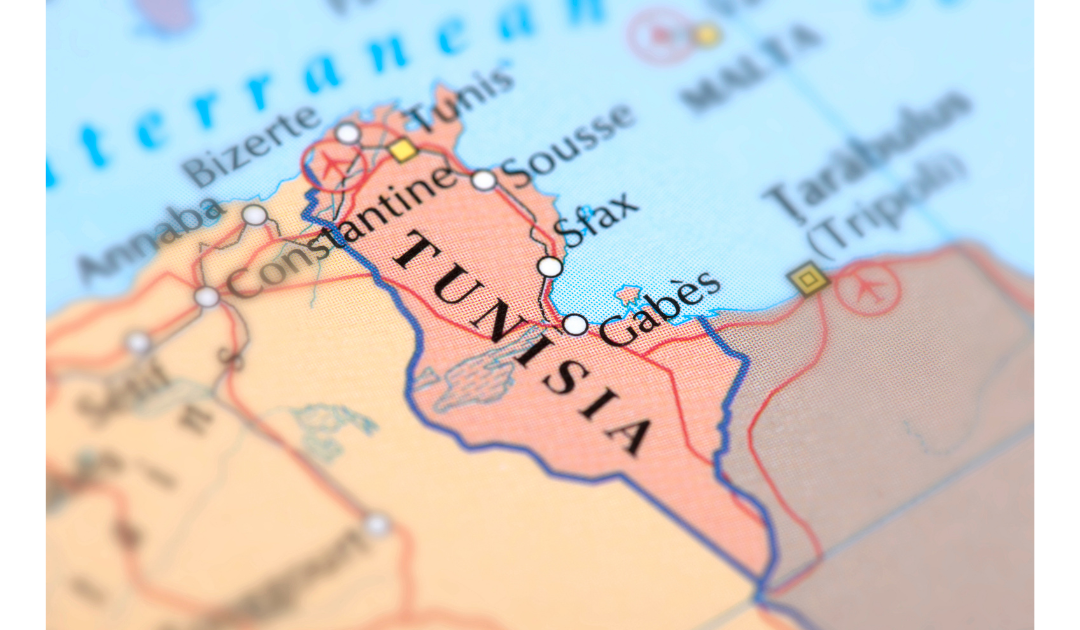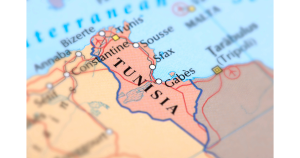By Alison Smith, Legal Counsel of NPWJ
On 17 December 2010, a single act of protest against the tyrannical regime in Tunisia resonated with hundreds of thousands of people across the Middle East and North Africa, setting off a democratic tsunami that has changed life forever. At the end of 2010, none would have believed that such immense, sweeping change would have happened throughout the region less than three months later. Tunisian President Ben Ali is gone. Egyptian President Hosni Moubarak is gone. Protests have engulfed Algeria, Bahrain and Yemen, with no signs of abating. The people of Libya have said “enough” to the brother-leader Muammar Gadhaffi. Most incredibly of all, in some ways, the United Nations Security Council has risen, at least partially, to meet their responsibility of maintaining international peace and security and has referred the situation in Libya to the International Criminal Court. It all began here, in Tunisia, which seemed from the outside to be a pleasant enough place and a good tourist destination, but with a façade that shrouded if not hid brutal repression, massive corruption, severe human rights violations and crushed democratic aspirations.
Two months after the revolution and the departure of President Ben Ali, Non c’e’ pace senza giustizia – No Peace Without Justice – went to Tunisia to meet with civil society and government actors to discuss their hopes and needs for the International Criminal Court and for transitional justice more generally. A simple enough mission, and similar to missions we conduct regularly to all parts of the world, but with one major difference. Just three months ago, civil society simply did not exist officially; it was unable to identify itself publicly. To do so would have meant harassment, intimidation, detention, torture and worse. Until the revolution, civil society hid in the shadows, often operating from abroad and afraid to show their faces, all with good reason. Now, they are starting to come out and claim their rightful place in a new Tunisia, conscious of the heavy burden on their shoulders to help build that new Tunisia and infused with the need to get it right.
Things now seem to be like any other vibrant metropolis in downtown Tunis. People are going about their daily business, drinking coffees in the French-style cafes lining the broad avenues. The shops are full, people are taking their Mediterranean strolling very seriously and the traffic (while dense) more or less obeys the rules of the road, at least when there’s something coming the other way. But you only need to take a few more steps to see that things are not really settled at all. Dominating one of the main streets of Tunis is the monolithic Ministry of the Interior, an infamous maze of buildings symbolising the worst of Ben Ali’s regime. There is a lot of discussion in the corridors, and on the airwaves, about the future fate of this building: one possibility is to use it to house a different Ministry; another is to turn it into a museum memorialising the victims of the regime. It is too early to tell, but the very sight of the building is a reminder that Tunisia has a lot of work to do, not least because of the armoured vehicles – formerly unseen on the streets of Tunis – surrounding the Ministry and other strategic locations throughout the city. Slightly unnerving, but as the revolution unfolded, the army turned out to be on the side of the people, while the police were anything but and several have now either been forced out or simply not turned up for work. Not to worry, I was told, in this day and age, the army are the “good guys”.
As with all revolutions, nothing is as simple as it seems. A friend and colleague described the current situation in Tunisia, noting that “We thought we had a façade of democracy; as it turns out, we actually had the façade of a State. Nothing works. Everything has to be done from scratch.” This is the daunting task facing Tunisia ’s new leaders, both government (and how to do that when no one has any experience even being in opposition?) and civil society (and how to do that when there has been no visible civil society for a generation?). Everything needs reform: health, education, the security sector, elections, the justice system, corruption, employment – the list goes on. It is not so much rebuilding as actually building, from the ground up, the essential infrastructure that a State needs to run on a day-to-day basis, in a framework of democratic principles that keeps the State on the straight and narrow, working for and accountable to the people.
In that context, the response might well be – and in some, notably foreign, quarters is –take care of democracy-building and the infrastructure first, then work can start on transitional justice. People need a stable State that provides basic services before we should even think of esoteric concepts like justice and accountability. In this, however, the people of Tunisia think differently, particularly civil society that is starting now to regroup and assert itself. They see justice and accountability for past violations as an essential component of building that stable State, not as something that can be tacked on later. As with the other reform that is required, they say it is needed now, both to demonstrate a real break with the past but also to make sure that a new Tunisia is built on a solid foundation of respect for the rule of law that includes accountability of its leaders, current and former, to the people. Beginning with accountability for the events of recent months is a good start, but eventually this must extend back to the repression and oppression of previous decades.
There is also a danger that in the zeal to remove all that is associated with the former regime, there will be a gap in essential services and in governance. In Tunisia there has not been a vibrant civil society or any opposition parties for the past 30 years, so there has been little chance for those outside the regime who remained in Tunisia to develop the skills and experience needed to govern a country. By all means, people who were active proponents and participants in past repression must go, at the very least, but there also needs to be a cadre of experience to help guide Tunisia into its new future. Transitional justice can help with that, just as it can help with the other steps Tunisia needs to take in its transition to democracy.
One of the most striking things, however, is the awareness of Tunisia of the historic importance of what is happening, not just for Tunisia but for the region. As we drove downtown, we passed the Libyan embassy, like the Ministry of the Interior surrounded by barbed wire, armoured vehicles and men in army uniforms. Just next to it, tables on the sidewalk were covered with food, blankets, toilet paper and other essentials of life. This is a collection point for Tunisian citizens to give donations for the people of Libya , whose own democratic revolution is turning out to be far bloodier and devastating than any in the region. Donations are coming in from all over Tunisia, particularly the poor, rural areas. The Red Cross has now asked that people stop giving: they have too much already, their challenge is not getting supplies but getting those supplies to the people in Libya who need it.
This generosity of spirit, coming at a time when Tunisia itself could be more than forgiven for looking inward, underscores the regional dimension of what is happening now. Tunisians are aware of their place in history and aware that their neighbours, like themselves, are drawing strength from the courage of Mohamed Bouazizi and others like him who began the fight against oppression that ultimately is being won. Yes, reform is needed in Tunisia, to make the most of the opportunity they now have to build a State founded on democracy and human rights; but in those efforts – and particularly in any transitional justice process established to help those efforts – we like Tunisia must keep an eye on the region and be ready to help prevent the house of cards from tumbling down.




